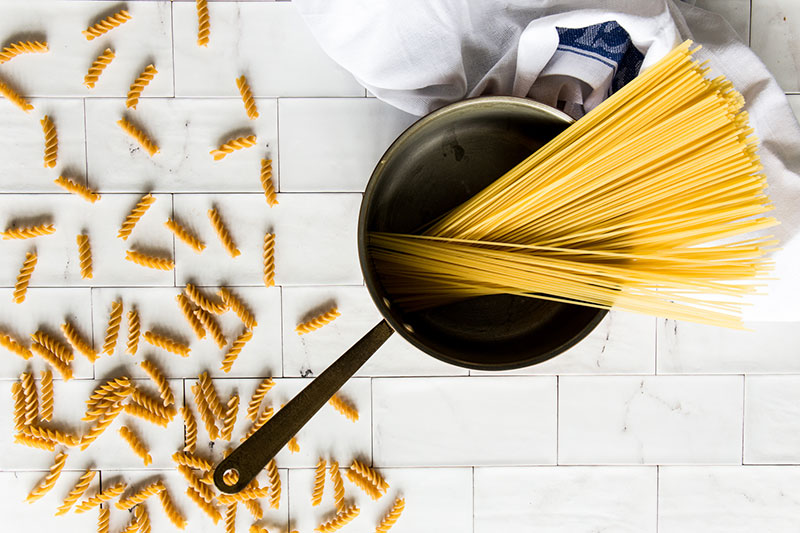It’s an incredibly unique thing, our current obsession with food intolerance. The world has experienced vast swathes of intolerances in history, normally towards large groups of other people. Today, there’s a swelling mass of people claiming that certain foods don’t make them feel very good. Often backed up with little or no scientific data, these people are changing the course of food in our country and reshaping the profile of products on the shelves in our shops.
I often wonder if we’ll look back at this age along with the so called ‘cult’ of wellness and see it as a turning point in the enlightenment of our consumption of food or merely an unscientific hippyish fad.
The ‘Cult’ of Wellness.
Wellness certainly attracts a lot of cynicism. There has been very vocal opposition, especially against bloggers who are purporting health benefits despite having very little or no formal training in nutrition. Some of these people, most famously Ella Woodward, claim they have alleviated symptoms that were hindering their enjoyment of life, merely by changing diet. She chose this path in the face of medical confusion and a failure to successfully treat her symptoms. She then decided to report her experiences in the easiest way she could, blogging.
This attracted an enormous following and she is now one of the countries top food authors. I don’t believe there’s anything inherently evil, wrong or misleading about people like Ella Woodward, because her popularity is nothing to do with her. She didn’t create it, because as every musician in the world will tell you, it’s not your choice whether you become famous or not, you don’t chose it, it just happens.
People follow her because they like what she does and what she says, they feel some kind of association or connection with her, hence follow what she does. We are lucky to live in a country which allows free speech, so there are untold facets of food culture nestled away in cyber space, free for anyone to follow. But the fact people chose her tells us more about the interests, feelings and direction of the population of the UK than it does about her.
But We Need Numbers! Facts! Figures!
I feel that the people who stand in opposition to wellness are lined up in a defensive wall, dressed in laboratory coats saying “but if you can’t prove it with numbers and graphs then IT CANNOT EXIST!”, which is a startlingly backwards stance to take. Discounting things which aren’t proven with numbers is a blinkered view to take.
Mental health is very hard to prove in numbers and scientific data, but is finally getting the huge amount of recognition it deserves. To expect all decisions around food to be based on fact is discounting one of the most important factors in human existence, our experiential opinion and feelings about the world we live in. Scientific proof lags a long way behind feelings and opinions. The realms of the human consciousness have barely had the surface scratched by people in laboratories with clipboards and rulers, so to only give something a voice once it’s been scientifically proven is the position of a closed mind.
Food Intolerance.
Therefore it’s people’s intolerance of these new diets that I’m fed up with. I’m bored with intolerant people criticising wellness and free-from diets. I’m tired of people who feel compelled to take a stand against wellness or food intolerance, just because it isn’t backed up with a doctor’s report. I feel that independent thoughts and feelings on dietary choices is such a huge movement currently, that to deny it or claim it’s not relevant because it’s not summed up with facts would be foolish. Like people are sticking their fingers in their ears and saying “no, I can’t hear you, nah, nah, ahhhh”, rather than listening to what people have to say and learning from it.
My personal experience is with spelt flour. A couple of years ago I tried using spelt for some baking because I heard that some people preferred it. It was an experiment which morphed into an opinion that I found spelt an enjoyable thing to eat, it made me feel good. As a result, spelt become my default grain of choice, not because of any scientific proof, but because I decided it makes me feel better about myself. Not based on numbers, graphs or facts, but simply on the sensations and thoughts I experience when I eat it compared to regular wheat. This is different to dairy, where I actually vomited when I was first given it and despite many years of consuming it, it still makes me queasy if consumed in any quantity. A large glass of milk has always made me feel sick. I avoid it on a day to day basis, not because a doctor told me so, but because it doesn’t make me feel very good and I really don’t need a graph or laboratory report to understand that.

Physical Emotions.
I’ve been reading a book recently about the link between emotions and physical experiences, how there are a lot of connections within the body, that feelings aren’t something that occur only in the brain as thoughts, but that they permeate far deeper areas of ourselves, including our physical body.
There was a scientist called Candice Pert who linked the ultra-rational world of experimental science with the less definable world of human emotion. She discovered that when we experience emotion, we do so in locations all over our body, not just in our brains. The brain is the focal centre of neurotransmitters, but our emotions are also physically experienced throughout the body, through our neuropeptide receptors, of which there is a huge concentration down the spine and in the gut. This means that feelings are not just thoughts that occour within our head, but they are also experiences that manifest within our physical body.
This idea of emotion being a direct link to physical wellbeing is also demonstrated in the idea of the ‘disease-prone personality’, that certain personality traits, or ways in which people emotionally respond to situations, are linked to a propensity to suffer from certain illnesses. This idea has been around for quite some time and in fact, there are numbers and statistics to back it up. All of these ideas point towards a future where human emotions play a large part in our physical wellbeing, and food is without doubt a part of that picture, because to elicits such strong feelings.
Step Forwards, Not Backwards.
This is why I think it is regressive to be dismissive towards food intolerance, wellness, or any dietary choice made from a place of personal preference. There’s probably something quite important to learn amongst all of this, but an absence of facts and statistics is not a reason to dismiss something. If I feel sad on any particular day, I cannot give you a graph or statistic to prove that, yet that sadness exists. We now also know that the sadness could be having an effect on my physical body and physical health.
The link between food, feelings and our ongoing physical health is a very complex relationship which is not fully understood yet, but one thing is for sure, wellness and food intolerance has tapped into a huge fissure of feelings running through society. That popularity is of vital importance to understanding the modern perception of food. Blaming wellness, criticising it’s nutritional claims, demanding it be ignored or labelling it as dangerous seems like playing the victim and engaging in some petty mud slinging. What wellness has done is shown that people feel a certain way about food, and that needs to be looked at more carefully and understood, rather than simply dismissed.

